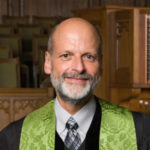 Good morning! I hope this day finds you and your family well, and I want you to know that you are in my prayers daily during this difficult time.
Good morning! I hope this day finds you and your family well, and I want you to know that you are in my prayers daily during this difficult time.
I invite you to take a few moments with me to reflect on today’s Upper Room Devotional below — as well as on the theology woven into “It is well with my soul.”
Today’s Scripture:
Psalm 51
Prayer for Cleansing and Pardon
To the leader. A Psalm of David, when the prophet Nathan came to him, after he had gone in to Bathsheba.
1 Have mercy on me, O God,
according to your steadfast love;
according to your abundant mercy
blot out my transgressions.
2 Wash me thoroughly from my iniquity,
and cleanse me from my sin.
3 For I know my transgressions,
and my sin is ever before me.
4 Against you, you alone, have I sinned,
and done what is evil in your sight,
so that you are justified in your sentence
and blameless when you pass judgment.
5 Indeed, I was born guilty,
a sinner when my mother conceived me.
6 You desire truth in the inward being;[a]
therefore teach me wisdom in my secret heart.
7 Purge me with hyssop, and I shall be clean;
wash me, and I shall be whiter than snow.
Tim’s Devotional Reflection for Today
Today’s reading—Psalm 51—is attributed in this way: “A Psalm of David, when the prophet Nathan came to him, after he had gone in to Bathsheba.” David took another man’s wife and arranged for him to die in battle to cover it up. Psalm 51 is a Psalm of acknowledgment or confession of what he had done and a prayer for forgiveness.
I invite you to think about a parable Jesus told and how it might apply to us in being honest with ourselves and with God. It is found in Luke 18:9-14:
He also told this parable to some who trusted in themselves that they were righteous and regarded others with contempt: “Two men went up to the temple to pray, one a Pharisee and the other a tax collector. The Pharisee, standing by himself, was praying thus, ‘God, I thank you that I am not like other people: thieves, rogues, adulterers, or even like this tax collector. I fast twice a week; I give a tenth of all my income.’ But the tax collector, standing far off, would not even look up to heaven, but was beating his breast and saying, ‘God, be merciful to me, a sinner!’ I tell you, this man went down to his home justified rather than the other; for all who exalt themselves will be humbled, but all who humble themselves will be exalted.”
Often the way Jesus taught shocked the religious people of his day and stirred them up. And it is no wonder! It is almost as if he preferred to associate with those considered disreputable, those on the fringes—even the outcasts and rejects of society. If you grew up in the church, read the New Testament, or have been around Christians very long, then you’ve heard all about the tax collectors and the Pharisees and it is unlikely Jesus’ parables would surprise you at all. Of course the Pharisee doesn’t look good. We’re used to Jesus’ critique of the Pharisees. Of course the tax collector seems like a good guy. We’re used to Jesus’ tendency to reverse things. In other words, because of our stereotypes, the parable doesn’t challenge us at all. It seems perfectly reasonable to us that the tax collector would be the hero and the Pharisee the villain. But for Jesus’ first hearers the reactions must have been very different. It is important for us to remember that the parable is addressed to those who “trusted in themselves that they were righteous and despised others.” The “others” were those people who were outside of the accepted definitions of righteousness.
Without question Jesus’ first hearers would have been shocked this parable! After all, Pharisees were considered truly righteous. As far as we know, what the Pharisee says in his prayer is true. He thanks God that he is not like others (and he is not!) and that he has been able to go beyond the expectations of the Torah in his fasting and tithing (and he has!). Though fasting is required only on Yom Kippur, the annual Day of Atonement, this Pharisee fasts twice weekly. He tithes all that he gets, even those things such as corn, oil and new wine, items for which tithing was not required since the tithe had been paid by the producer of the products. The point of the parable is not his insincerity. Jesus does not challenge the man’s claims. He presents them as facts. That’s the Pharisee.
What about the Tax Collector? There is no way that the tax collector in this story can be called a righteous man! Tax collectors in the Roman system of taxation were worse than scoundrels. They worked on commission. The more they could gouge out of their clients, the more they could pocket for themselves. They were collaborators with Rome, the occupying power in Palestine. They sold out their own people to a foreign power and became that power’s agents for the taxation of their own people. They made their money by oppressing their own people, especially the poor.
Tax collectors were not allowed beyond the Court of the Gentiles in the courts of temple, so he necessarily “stands far off.” Yet we overhear his prayer. His head is bowed and his hands beat upon his breast, clutching at his heart, the seat of one’s soul. Very much in keeping with Psalm 51, he cries the prayer of a helpless and hopeless man: “God, be merciful to me, a sinner!”
His prayer is true, also. He is a sinner! He is a cheat and a thief. He is has lined his pockets at the expense even of the very poor. Yet Jesus said that of the two, it was the tax collector who went back to his house justified. The tax collector went to the temple to pray and when he left, he was a different person. He left home that morning nothing more than a sinful, dishonest, unscrupulous, traitorous tax collector and returned home that evening a “justified” man! He went to the Temple as the person he had become and he went home a new person. When he walked through the door at home that evening, he was not the same man who had walked out the door that morning. But the Pharisee walked through the door of his home, the same person who walked out the door—no change. Why? It wasn’t a matter of honesty in praying. As far as we know, his facts about the practice of religion in his life were accurate.
The truth is, both of these are broken people. And the more pertinent truth for us is that we are subject to both kinds of brokenness. The Good News is that today we can be made whole. The Good News is that no matter what is going on in our lives at this moment, we can “go home” justified, that is, made righteous, forgiven, and in a right relationship with God and with others. We can be made whole.
Thank you for sharing this early moment of your day with me, with God, and with the words and music that I hope you will carry with you throughout the coming day and night.
I am so grateful for you, for our church, and for the Love that will see us all through this very difficult time. Please stay safe and well and we’ll be together again in spirit tomorrow morning!
Grace and Peace,
![]()
Dr. Tim Bruster
Senior Pastor
Here’s more about this passage of scripture via Upper Room devotionals:
A BANGED-UP DIME
No matter my appearance, God knows my true worth.

